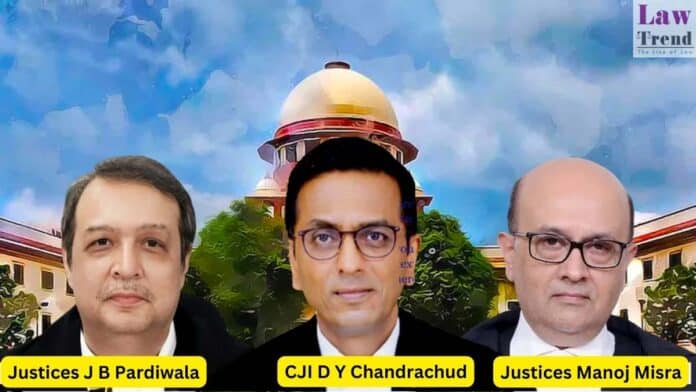The Supreme Court on Friday opted not to entertain a petition that sought directives for the appointment of “yoga mitra” instructors in schools across all states, emphasizing that the matter falls squarely within the government’s policy domain. The bench, led by Chief Justice of India D Y Chandrachud and including Justices J B Pardiwala and Manoj Misra, responded to petitioner advocate Ashwini Kumar Upadhyay’s request by stating the importance of yoga but reaffirming the judiciary’s role in such policy matters.
Chief Justice Chandrachud, acknowledging his personal practice of yoga, noted its significance in development but maintained that decisions regarding educational policy must be made by the government. “As a person who practices yoga, I can say it’s important for development, but this purely lies in the policy domain of the government,” the Chief Justice remarked.
The petitioner, Advocate Upadhyay, subsequently requested permission to withdraw the plea, which the bench granted. The original plea argued that integrating yoga into educational curricula would not only support the children’s right to health under Article 21 of the Constitution but also enhance their right to education as guaranteed under Article 21A.

The plea further highlighted that the “Right to health includes prevention and protection of health and is a minimum requirement to enable children to live with dignity.” It contended that the state has a constitutional obligation not only to appoint ‘yoga mitra’ instructors in schools but also to ensure the creation and maintenance of conditions conducive to good health.
Referencing Articles 39 and 47 along with Article 21, the petition underscored the responsibility of the state to improve the health of its citizens, particularly children, and to provide the necessary information, instruction, training, and supervision to fulfill this duty.







